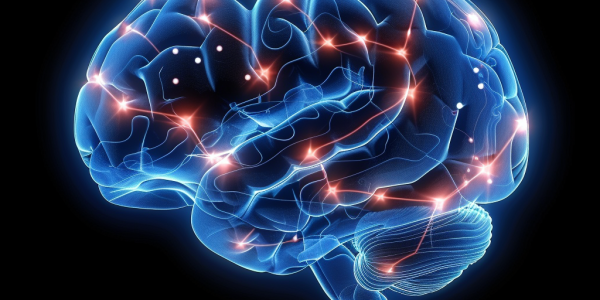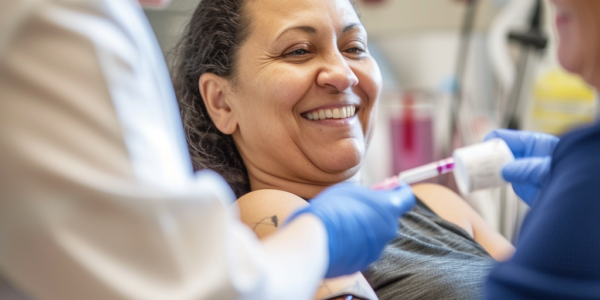Study Reveals Emotional Processing Dynamics in Treatment-Resistant Depression Patients
A recent study reveals that individuals with treatment-resistant depression (TRD) exhibit heightened sensitivity to negative stimuli and reduced responsiveness to positive ones. Researchers utilized stereotactic electroencephalography (sEEG) to investigate emotional processing in the amygdala and prefrontal cortex of TRD patients, uncovering significant differences. The findings suggest that correcting these neural discrepancies through deep brain stimulation (DBS) could lead to more effective interventions for TRD. This study, published in Nature Mental Health, sheds light on the emotion-processing bias in depression and the potential for DBS to modify neural responses to emotional stimuli.
The Potential of Ketamine in Mental Health Treatment
Learn about the potential of ketamine for treating treatment-resistant depression and other mental health conditions. Although not yet FDA-approved, ketamine and its relative esketamine show promise in relieving depression symptoms. However, concerns about long-term efficacy and safety have been raised. Explore the availability of unsupervised ketamine treatment and the importance of evidence-based practices for patient safety. Discover the safety protocols and personalized treatment plans involved in ketamine infusion therapy at Being Health.
Study Finds Close Relatives of Individuals with Treatment-Resistant Depression at Higher Risk of Developing Depression
A recent study has found that close relatives of individuals with treatment-resistant depression (TRD) are at a significantly higher risk of developing depression that does not respond to traditional treatments. The study, conducted by Dr. Cheng-Ta Li and his team, confirms the genetic transmission of TRD across families and its association with other major psychiatric disorders. The implications of these findings are significant as they highlight the need for early treatment options for individuals at risk of treatment-resistant depression and advocate for early alternative treatments for this subgroup.
Ketamine’s Leap from Fringe to Mainstream in Depression Treatment
New study shows significant promise for intravenous ketamine in treating severe depression and bipolar disorder, with 52% of participants achieving remission after just three infusions. Findings underscore the potential of ketamine as a powerful treatment option and highlight its rapid effectiveness in reducing suicidal ideation.




